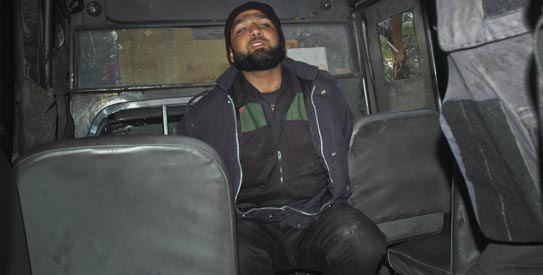
ISLAMABAD: The 26-year-old smiling assassin who killed Pakistani politician Salman Taseer is an elite commando trained by the government, motivated by religious zeal and praised by hardline clerics.
Protector-turned-killer Malik Mumtaz Hussain Qadri was shown being driven away in a police van smirking in a woollen hat and blue anorak after pumping nearly 30 bullets into Taseer's body outside an upmarket coffee shop.
Officials said he volunteered for duty that day, made sure his weapon was fully armed and then waited for his boss to walk towards his waiting car, before reportedly shouting “Allahu Akbar”, opening fire and surrendering.
Interior Minister Rehman Malik said Qadri confessed to the killing to protest against Taseer's opposition to Pakistan's tough blasphemy law that was recently used to sentence a Christian woman to death.
Police said he had links to non-political and non-violent Sufi-inspired Dawat-e-Islami party, based in the southern port city of Karachi.
Spokesman Mahmood Ahmed Attari told AFP he had no information about whether Qadri belonged to his party. “I cannot say anything about this,” he said.
“We are non-violent and non-political, ours is a preaching group,” he said.
Dawat-e-Islami members are moderate followers of the Barelvi sect of Sunni Islam and do not believe in agitation or protest demonstrations, he said.
Qadri was reportedly one of six sons and four daughters born to a mason and lived in Rawalpindi, the teeming metropolis neighbouring the capital Islamabad, with his wife of three years and a baby boy.
He is understood to have joined the Punjab provincial police nine years ago and was posted to Rawalpindi's elite unit in 2008.
Media reports differed on when exactly Qadri decided to assassinate Taseer, some saying it was only earlier on Tuesday, others that he had informed his police colleagues of his intentions several days earlier.
Qadri is being detained by police as investigations try to determine whether he acted alone or as part of a wider conspiracy.











































Dear visitor, the comments section is undergoing an overhaul and will return soon.